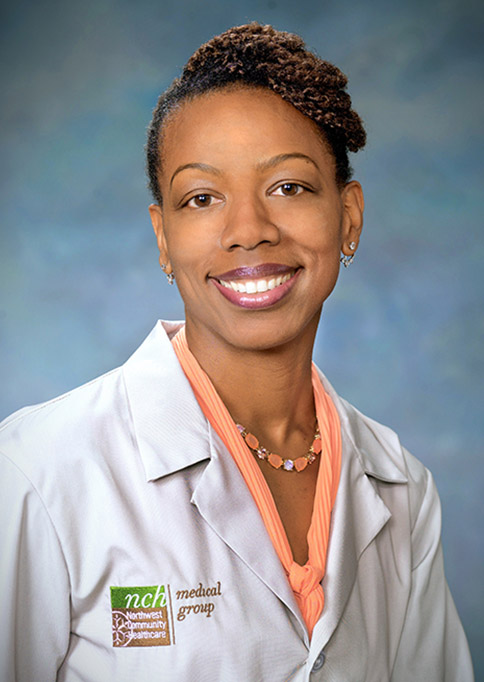Eczema Q & A: How to soothe and manage dry, itchy patches of skin
January 15, 2018

Stavonnie Patterson, M.D., Board-Certified Dermatologist
What is eczema?
Eczema is a skin condition that results in dry, itchy patches of skin. There are many different types of eczema. The most common type of eczema in children is atopic dermatitis, the type with which people are most familiar. Other types of eczema include contact dermatitis, nummular eczema and asteatotic eczema. All of them have different causes and triggers.
What causes eczema?
Multiple factors can cause eczema as there is both a genetic and environmental component to this skin condition. People who have atopic dermatitis often have allergies and asthma. For those who are already prone to eczema, there are many possible triggers including personal care products, environmental exposures (e.g., grass, mold) and certain foods.
What are the symptoms of eczema?
In general, it’s dry, itchy skin. A lot of times I’ll see red patches on the skin that are scaly. People who have eczema experience itchiness and sometimes feel like the dry patches of skin are burning. In some cases, secondary to all of the itching and scratching, people who have eczema can develop infections on their skin.
Where does eczema occur?
It can occur anywhere. In young children, we most often see it on the face, outer arms and front of the legs. In older children, most commonly affected are the folds of the skin such as where the arms and legs bend (e.g., the folds of the elbow, the back of the knees). For some people who have severe eczema, their whole body may be covered in the patches of dry, itchy skin.
Does eczema affect adults differently than children?
In adults we often see forms of eczema other than atopic dermatitis. Adults can have nummular eczema, which are little circular patches of eczema that can be scattered anywhere on the body. There’s also contact dermatitis, which develops when a person’s skin comes in contact with something to which it’s sensitive. Hand eczema is a common form of contact dermatitis.
How is eczema treated?
It depends on how severe the eczema is. For some, simply using good moisturizers and avoiding allergic triggers can clear the eczema. For others, medicine is needed. There are topical medicines—most commonly topical steroids—which are applied to the skin one to two times a day. A different type of topical medicine, calcineurin inhibitors, are safe to use anywhere on the body and are used to treat smaller areas of eczema, such as on the face. There is a new medicine called Eucrisa® that works differently than other topicals. It’s for mild to moderate eczema and is safe to use anywhere on the body. Additionally, there are antihistamines such as Benadryl®, Allegra® or Zyrtec®, which we use for people who are really itchy. They can help relieve the itching.
How can eczema best be managed during the winter?
Because of the dryness of the season and our furnaces are constantly running, eczema definitely can get worse in the winter. It’s important that people who have it follow what we call ‘gentle skin care routines,’ which generally include:
- Warm showers instead of very hot showers
- Using a humidifier
- Avoiding harsh soaps and instead using very gentle cleansers
- Moisturizing immediately after bathing or showering
- Avoiding things that have fragrances in them (especially things that come in contact with the skin), including detergents, fabric softeners, perfumes or colognes (do not spray them directly on to the skin but rather on clothing)
What personal care products do you recommend for people with eczema?
I typically recommend Dove white bar soap or Caress soap because they are gentle cleansers. But other product lines now are offering effective gentle cleansers such as Vanicream and CeraVe. In general, avoid body washes. The bar soaps are better for eczema. For kids who have eczema, avoid bubble baths. It can make it worse.
To schedule an appointment with Dr. Patterson, call 847-725-8401. Her office is located at 1051 W. Rand Road, Suite L02, in Arlington Heights.